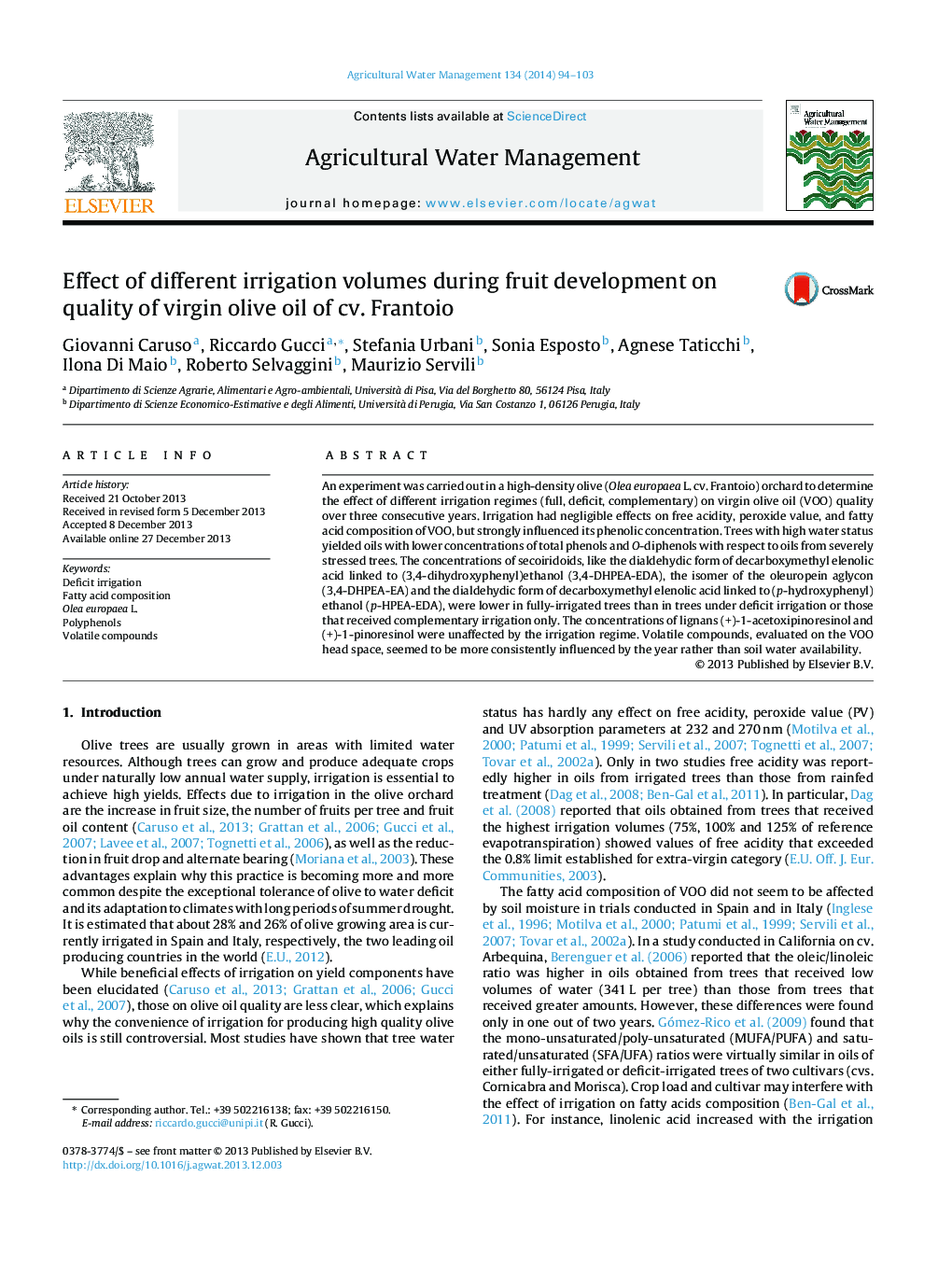| Article ID | Journal | Published Year | Pages | File Type |
|---|---|---|---|---|
| 4478751 | Agricultural Water Management | 2014 | 10 Pages |
•Irrigation had not effects on free acidity, peroxide value, and fatty acid composition of VOO.•Trees with high water status yielded oils with lower concentrations of total phenols.•The concentrations of secoiridoids were lower in fully-irrigated trees.•Volatile compounds were more influenced by the year rather than soil water availability.•Deficit irrigation is an optimal compromise between maximizing yield and quality.
An experiment was carried out in a high-density olive (Olea europaea L. cv. Frantoio) orchard to determine the effect of different irrigation regimes (full, deficit, complementary) on virgin olive oil (VOO) quality over three consecutive years. Irrigation had negligible effects on free acidity, peroxide value, and fatty acid composition of VOO, but strongly influenced its phenolic concentration. Trees with high water status yielded oils with lower concentrations of total phenols and O-diphenols with respect to oils from severely stressed trees. The concentrations of secoiridoids, like the dialdehydic form of decarboxymethyl elenolic acid linked to (3,4-dihydroxyphenyl)ethanol (3,4-DHPEA-EDA), the isomer of the oleuropein aglycon (3,4-DHPEA-EA) and the dialdehydic form of decarboxymethyl elenolic acid linked to (p-hydroxyphenyl) ethanol (p-HPEA-EDA), were lower in fully-irrigated trees than in trees under deficit irrigation or those that received complementary irrigation only. The concentrations of lignans (+)-1-acetoxipinoresinol and (+)-1-pinoresinol were unaffected by the irrigation regime. Volatile compounds, evaluated on the VOO head space, seemed to be more consistently influenced by the year rather than soil water availability.
